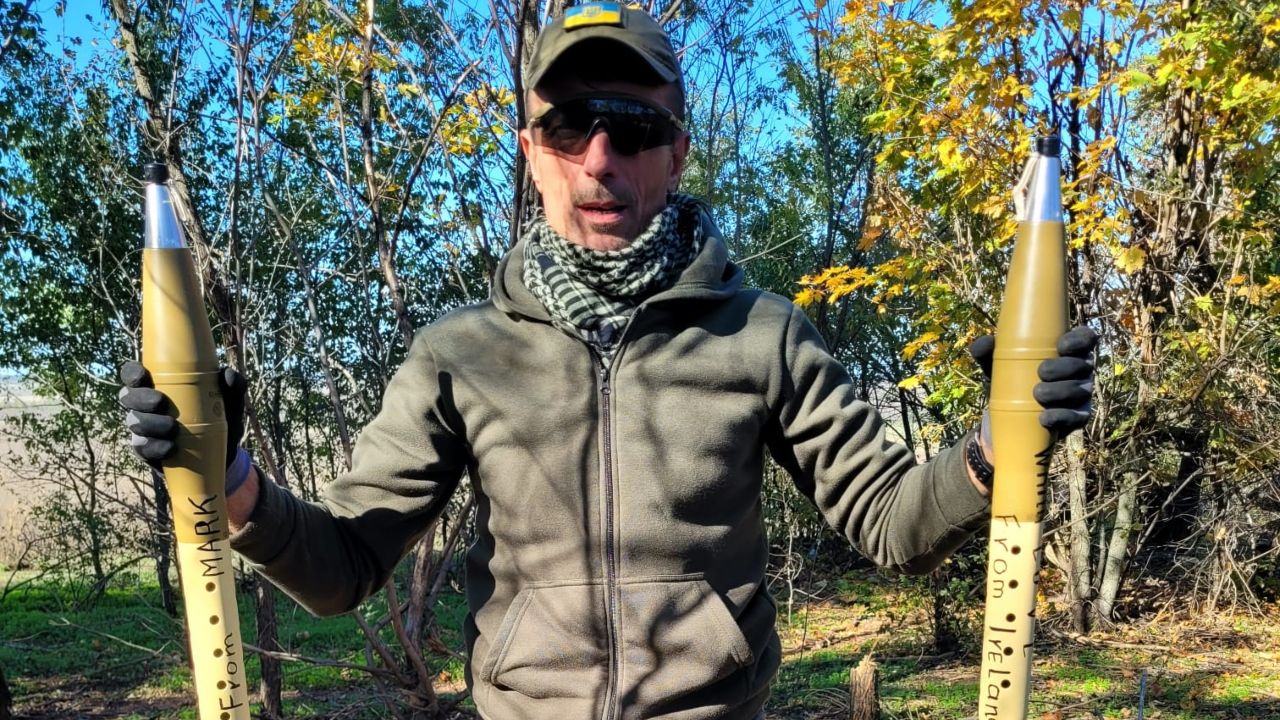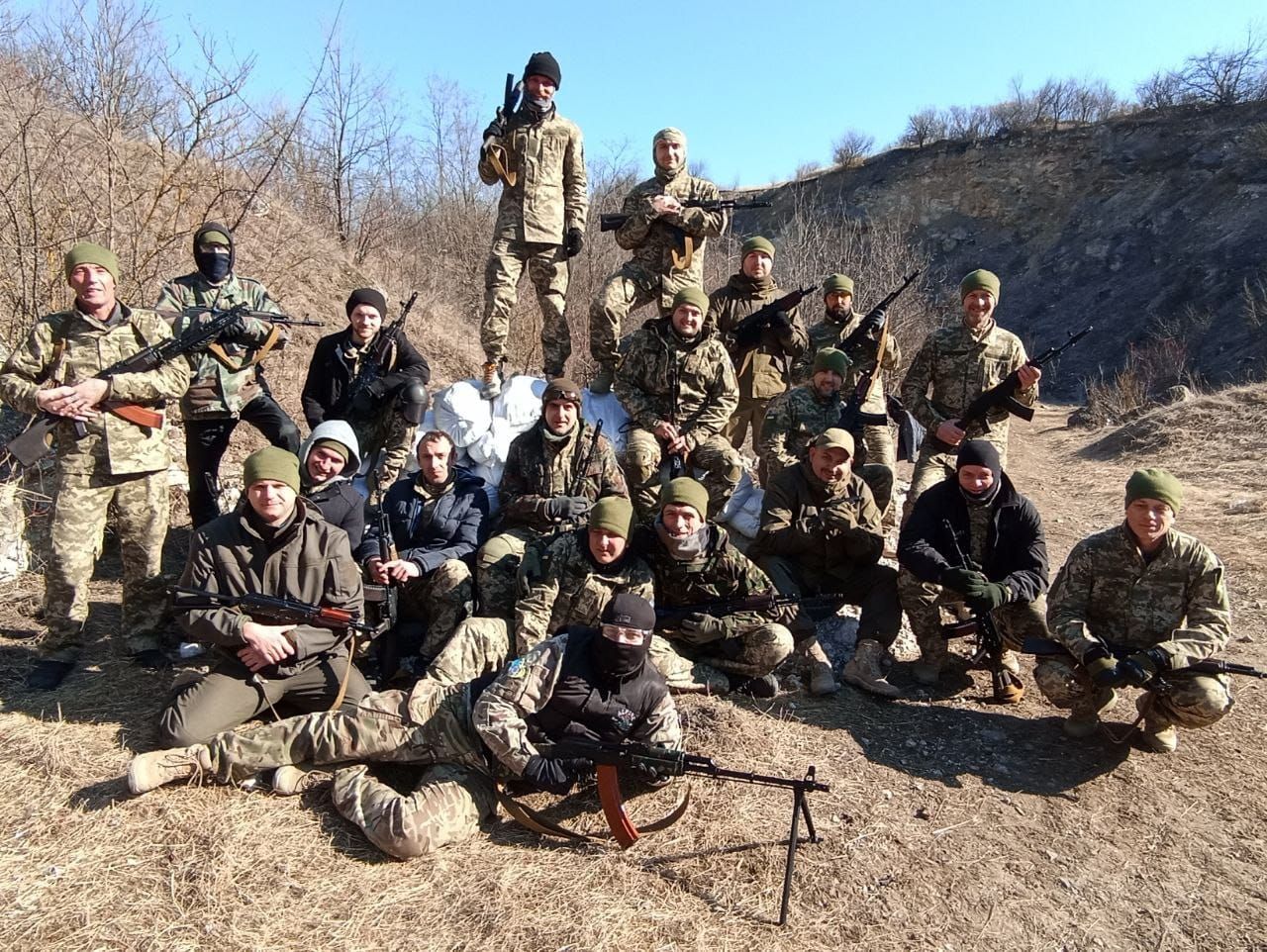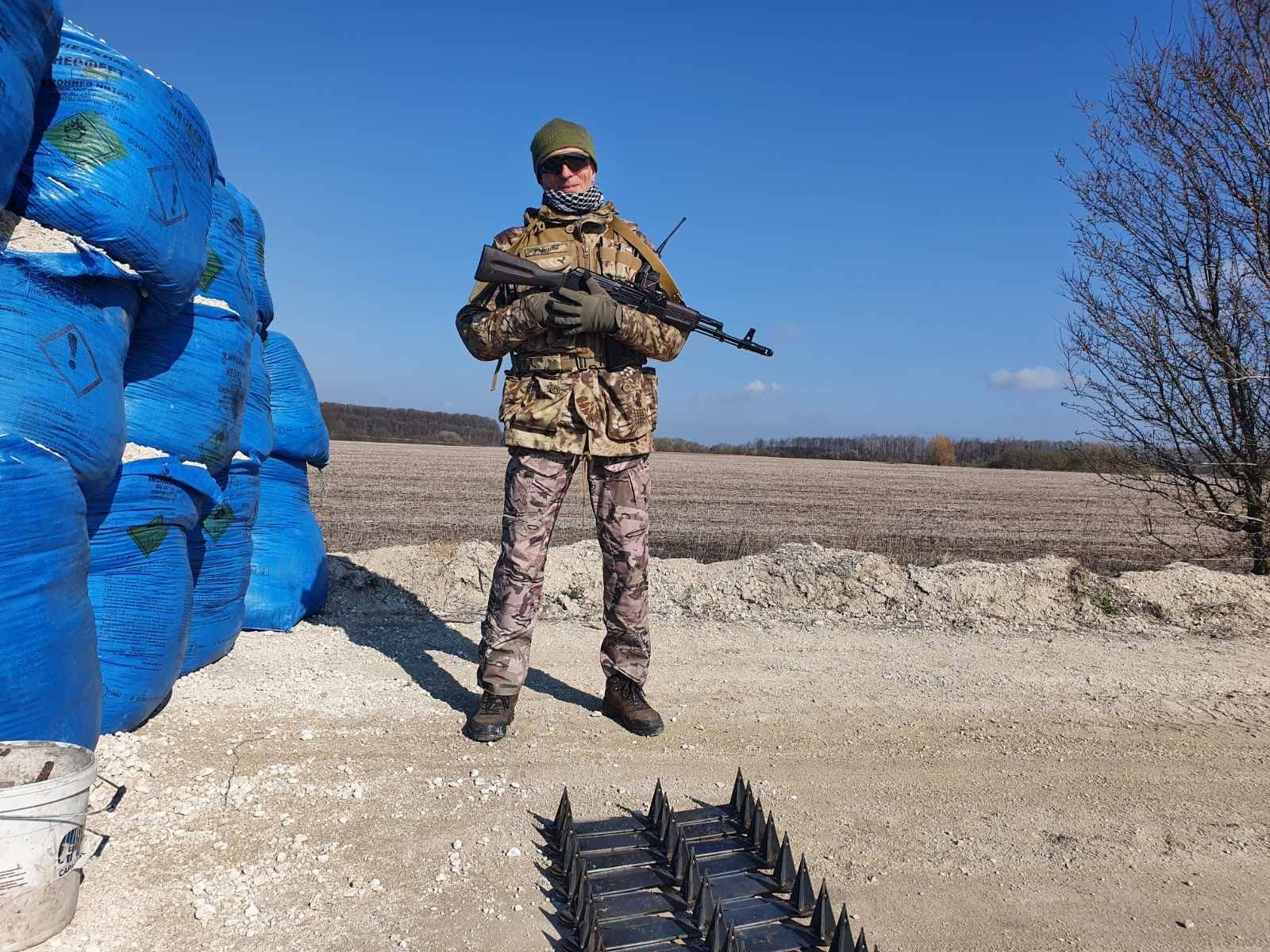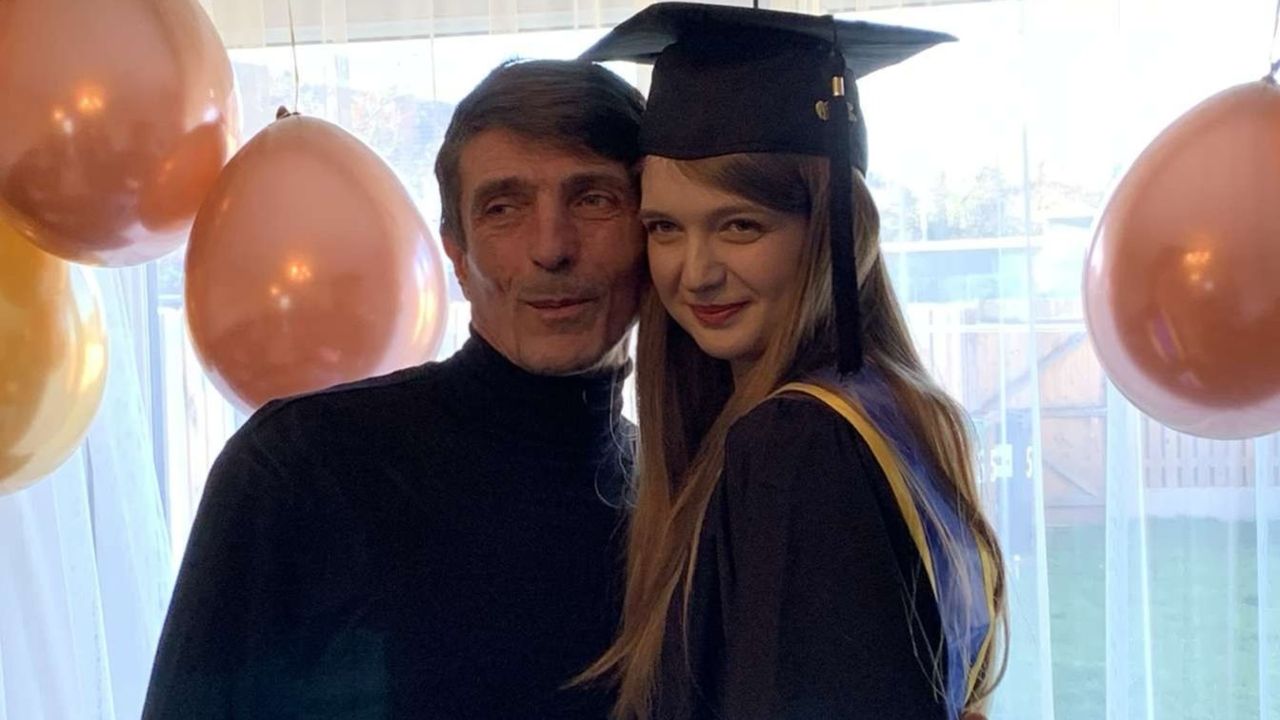

Share
4th May 2023
09:09am BST

 Vadym (pictured), left behind his "comfortable life" in Dublin to return to defend his homeland.[/caption]
Vadym (pictured), left behind his "comfortable life" in Dublin to return to defend his homeland.[/caption]
“It’s not hard to explain. First of all, what would you do if England invaded Ireland? Would you stand aside and watch women and children fight in your place? As a man, I cannot sit and watch this happen on TV, it’s just not me”.Having already been away from Ireland for over a year, Vadym is understandably eager to return home to his wife and two children. However, he remains adamant that he will only do so when the war is over and the Russian army has been repelled from Eastern Ukraine. “This is a test for mankind. This is a test for real men. It is a new era for my country and Europe, and I will be a small piece of it. I will stay until we finish the job”. [caption id="attachment_773314" align="alignnone" width="640"]
 Vadym has been fighting in Eastern and Southern parts of Ukraine with this group of men whom he calls his "brothers".[/caption]
Vadym has been fighting in Eastern and Southern parts of Ukraine with this group of men whom he calls his "brothers".[/caption]
“Houses are destroyed, thousands are dead, and even children. Kids dead, what are we talking about, it’s crazy. Around me, there’s so much destruction. I haven’t been to a single small town or village which has not been damaged and had families leave”.“I can see through my binoculars the faces of Russian soldiers. Every minute I feel like I’m close to death. The Russian artillery is constantly sending ‘surprises’ across the frontline on top of us”, states Vadym. But the Dublin tradesman takes great comfort in the support which the army receives from the people of Ukraine, who he says have come together like one big “machine” to support the nation’s military effort. Another reminder of the perils of war came last week though, as the news broke that Mayo man Finbar Cafferkey had been killed in Eastern Ukraine battling against Russian forces. Unprompted and clearly wishing to emphasise his admiration for Mr. Cafferkey, Vadym declared that “He’s a hero here, a hero definitely. Lots of our media are saying that too, and the people who fought with him only have good words to say about him, so he’s a hero for sure”. [caption id="attachment_773315" align="alignnone" width="640"]
 Vadym has not seen his family for 14 months, which has for him been "the hardest part" of war.[/caption]
Vadym has not seen his family for 14 months, which has for him been "the hardest part" of war.[/caption]
“We are opening people’s eyes to what they haven’t been able to see before- that Ukraine is one big strong country. We are becoming a part of its long history and I believe that people will never forget what we’ve done here”.Speaking to Vadym’s daughter, Veronica, she echoed the sentiment of her father, describing the “heartbreaking” nature of his abrupt departure. “It felt so surreal to hear him say he was going to go and fight, that he was going to go and book the tickets. I don’t mean to sound dramatic, but it was really like your whole world came crashing down”. Before he left, having realised there was no way to convince her father not to go back to Ukraine, Veronica remembers going up to him; “I was hugging him and crying, and I told him ‘I know you’re not going to stay, but I just want you to come back to us’”. [caption id="attachment_773328" align="alignnone" width="640"]
 Vadym's daughter, Veronica, spoke of her admiration for her father.[/caption]
Vadym's daughter, Veronica, spoke of her admiration for her father.[/caption]
“Unfortunately, I’ve had to stop really looking at the news. It’s not fully possible but you try to avoid reading certain stories or seeing all the horrible things that happen to soldiers, because at the back of your mind you’re like ‘that could be my dad’”.Reacting to her father’s decision to stay in Ukraine as long as the conflict stretches on, Veronica was upset but ultimately understood Vadym’s intentions. “He’s not one to back down, and he wouldn’t leave his comrades behind, and he wants to be a hero in our eyes. But, you know, we love him no matter what and I’d love for him to come back as soon as possible”. Anticipating her father’s eventual return, Veronica expressed how eager she was to be reunited after such a lengthy period apart, describing what their first interaction together would look like. “I’m going to tell him that I love him so much, even though I tell him that every day already, and give him the biggest hug ever. And Dad does these amazing greasy sandwiches, which are so good and no one can do them like he does. So we’re just going to have a really long chat catching up, watch some movies and just enjoy being in each other’s company again”. Moreover, the next time a Ukrainian war bulletin flashes across your screen, don't allow the process of desensitisation to occur. Remember that this conflict has very real consequences, for very real people- with some being closer to home than you may think. Related Articles:
Explore more on these topics:

Politics | Joe.ie
politics